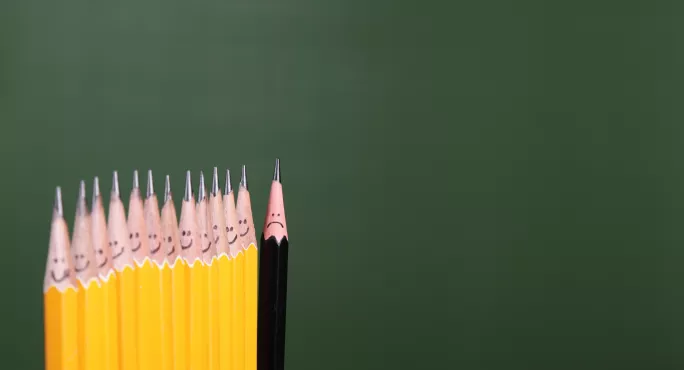Ever heard of the classical composer and virtuoso violinist Chevalier de Saint-Georges - the first known classical composer of African ancestry, who played for Marie Antoinette at the Palace of Versailles in France in the 1700s?
What about African American Charles Richard Drew who invented the large-scale blood bank to help injured British soldiers and civilians during the Second World War?
No? Well, teachers need to educate themselves - because it is time school pupils started to be made aware of these figures and we started to “decolonise the curriculum”, says Professor Rowena Arshad, the guest on this month’s Tes Scotland podcast.
Professor Arshad is stepping down from her role as head of the University of Edinburgh’s Moray House School of Education, after becoming the first black and minority ethnic head of a university school of education in Scotland in 2013.
According to Professor Arshad - who says the best thing about Scottish education is its “passion for social justice and fairness and human rights and humanity” - schools should “go beyond the obvious” when it comes to tackling racism. She says it is not enough to address overt racism by challenging name-calling or “blatant body swerves” but we need to go further and tackle the narrowness of the school curriculum.
Professor Arshad says: “I’d like us to be more sophisticated. The tool we have is our curriculum - that is what we use to educate our pupils. We should be looking at how we decolonise the curriculum. For example, I played a piece of music for the student group. I said, ‘Who do you think composed this?’ Some people said Mozart, some people said Haydn.
“I asked who had heard of Mozart and every hand in the room went up, but actually it was Chevalier de Saint-Georges who was Marie Antoinette’s violinist but who was in the timescale of Mozart and composed [similarly] to Mozart’s style. Maybe he was even influenced by Mozart; nobody knows about him.
“There was another guy, Chandrasekhara Venkata Raman, who learned about light diffusion and how you split light - so your children might ask you things like, ‘Why is the sea blue?’ He was a Nobel [prizewinning] physicist in 1930 - why do we not know that?
“We don’t know that it was somebody of colour who invented how to keep blood and that’s what blood banks are. Some of us will have had blood transfusions and depended on bloods. Without his work to actually develop how to store blood, we would all be in quite a difficult position now. Why are we not knowing that?
“That’s what decolonising the curriculum is about. So when you start doing that change, actually you are engaging in antiracist work, you are engaging in multicultural work. You may not call it that, but that’s what you are doing. I would rather we concentrated on looking at things like that and it doesn’t matter if you are black, white or brown we can all be doing that.”
Professor Arshad - whose mother was Chinese Christian and whose father was Indian Muslim - also talks about being the class clown growing up and going to school in Penang in Malaysia; the culture shock she experienced when she first came to Britain; and why all teachers have something to learn from Kung Fu Panda’s Master Shifu.




